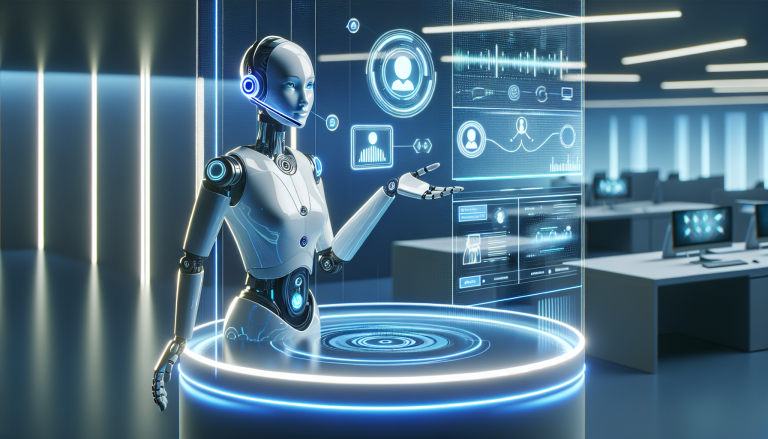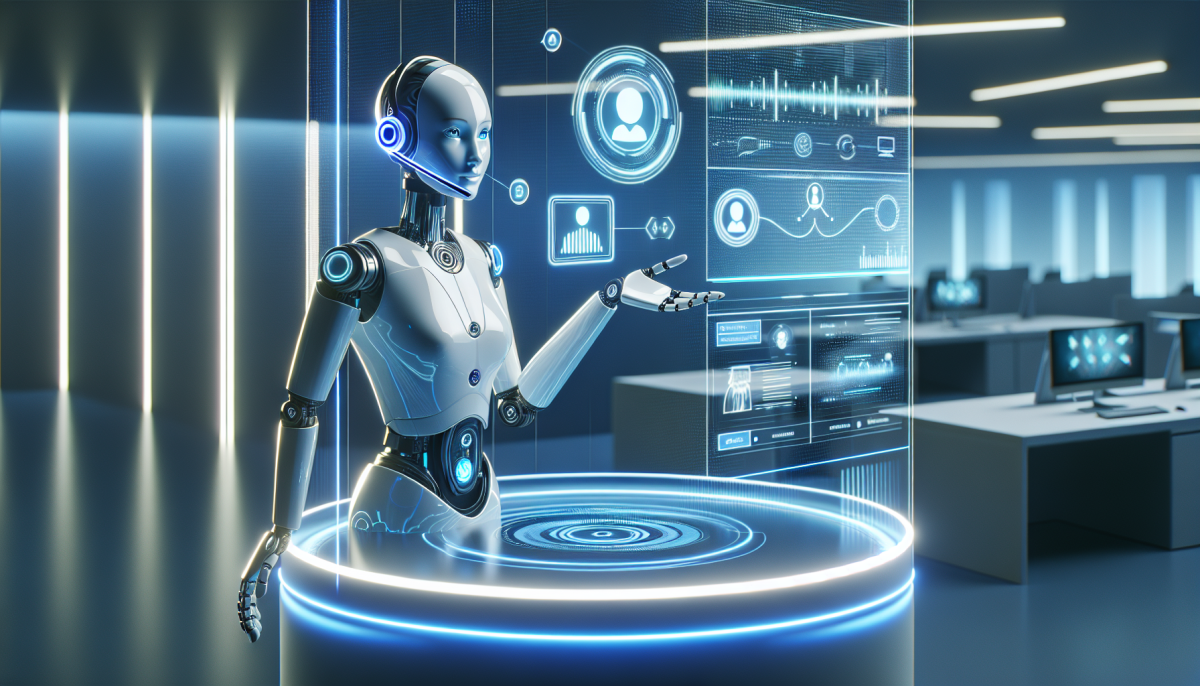AI-Driven Customer Service: Revolutionizing Interaction Through Intelligent Technology
In the rapidly evolving landscape of modern business, artificial intelligence (AI) has emerged as a transformative force, particularly in the realm of customer service. Today, we’ll explore how AI is fundamentally reshaping customer interactions, creating more personalized, efficient, and responsive experiences that are setting new standards across industries.
The Evolution of Customer Service in the AI Era
The traditional customer service model, characterized by long wait times, generic responses, and limited accessibility, is quickly becoming obsolete. AI technologies are driving a radical transformation, enabling businesses to deliver unprecedented levels of personalization and responsiveness.
Modern AI-powered customer service solutions leverage advanced machine learning algorithms and natural language processing to understand, predict, and respond to customer needs with remarkable accuracy. These intelligent systems can analyze vast amounts of data in real-time, providing insights and solutions that were previously impossible.
Key Technological Innovations Driving AI Customer Service
Several groundbreaking technologies are at the forefront of this revolution:
1. Intelligent Chatbots
Advanced chatbots now use sophisticated natural language understanding to provide human-like interactions. Unlike earlier versions that relied on rigid, pre-programmed responses, modern AI chatbots can comprehend context, interpret nuanced language, and deliver contextually appropriate solutions.

2. Predictive Customer Support
AI algorithms can now anticipate customer issues before they arise by analyzing historical interaction data, usage patterns, and potential problem indicators. This proactive approach allows businesses to address concerns preemptively, significantly enhancing customer satisfaction.
3. Personalization at Scale
Machine learning models can now create highly personalized customer experiences by analyzing individual customer data, preferences, and interaction histories. This enables businesses to tailor their communication and service approach for each unique customer.
Real-World Implementation: A Transformative Case Study
Consider the example of TechCorp, a mid-sized software company that implemented an AI-driven customer service strategy. By integrating an advanced AI support system, they achieved remarkable results:
– 40% reduction in average response time
– 65% decrease in customer support operational costs
– 85% improvement in first-contact resolution rates
Their AI system integrated multiple communication channels, providing seamless support across email, chat, and voice platforms. The intelligent system could route complex queries to human specialists while handling routine inquiries automatically.
“AI is not about replacing human interaction, but enhancing it,” says Maria Rodriguez, TechCorp’s Chief Technology Officer. “Our goal is to use technology to create more meaningful, efficient customer experiences.”
Ethical Considerations and Challenges
While AI presents tremendous opportunities, businesses must navigate ethical considerations carefully. Transparency, data privacy, and maintaining a human touch remain critical considerations.
Key ethical guidelines include:
– Clearly disclosing when customers are interacting with an AI system
– Implementing robust data protection mechanisms
– Ensuring AI systems are designed with inherent fairness and without bias
– Providing easy options for customers to connect with human representatives
Future Trends and Emerging Technologies
The future of AI in customer service looks incredibly promising. Emerging technologies like emotional intelligence algorithms, advanced voice recognition, and more sophisticated natural language processing will continue to push boundaries.
Experts predict that within the next five years, AI will:
– Handle over 70% of customer interactions
– Provide near-instantaneous, highly personalized support
– Integrate seamlessly across multiple communication platforms
– Offer predictive and proactive service models
Strategic Implementation Recommendations
For businesses looking to leverage AI in customer service, a strategic approach is crucial:
1. Start with a clear understanding of your specific customer needs
2. Invest in robust, scalable AI technologies
3. Maintain a balanced approach that combines AI efficiency with human empathy
4. Continuously train and refine AI systems
5. Monitor performance and customer feedback meticulously
Conclusion: The AI-Powered Customer Service Paradigm
Artificial intelligence is not just a technological upgrade—it represents a fundamental reimagining of customer service. By combining data-driven insights, intelligent automation, and personalized experiences, businesses can create service models that are faster, more accurate, and infinitely more responsive.
The companies that successfully integrate AI will distinguish themselves through superior customer experiences, operational efficiency, and a forward-thinking approach to technological innovation.
As we stand on the cusp of this technological revolution, one thing is clear: AI is not just changing customer service—it’s redefining it.

